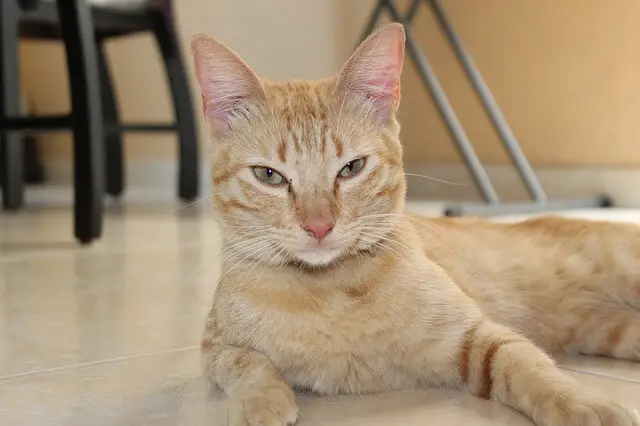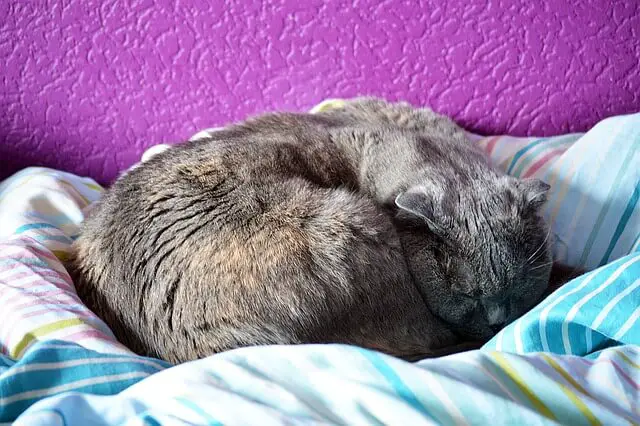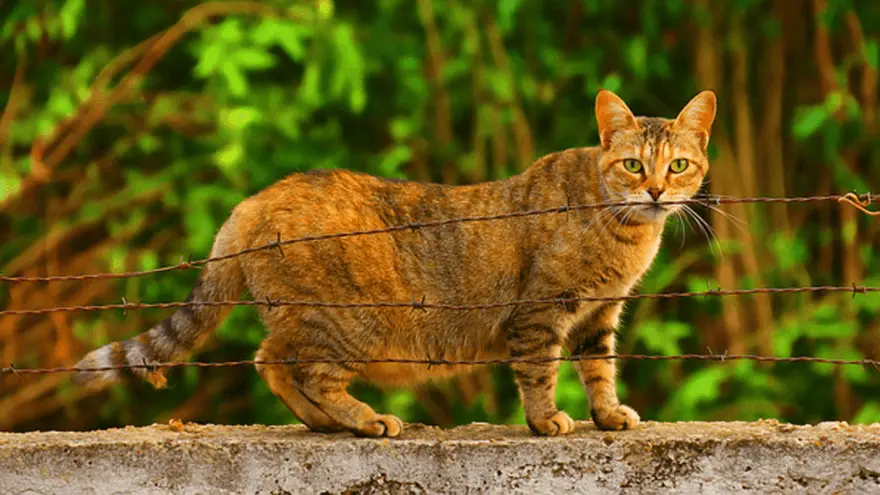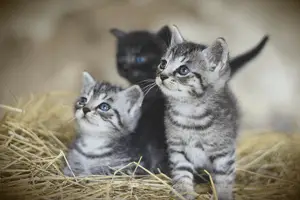Is My Cat Pregnant? Here’s How You Can Tell
14.04.2022.
As long as your cat has access to an unneutered male cat, there is a potential that she got pregnant. Many cat owners ask, “How can I know if my cat is pregnant?” Around three weeks after breeding, pregnant queens will begin to show physical and psychological changes.
A cat's pregnancy lasts 64-66 days on average. A normal pregnancy lasts about 63 days or nine weeks. Here’s how you can find out if your cat is pregnant.
Body changes in pregnant cats
Keep an eye out for these indicators of pregnancy in your cat:
Heat cycle ends
You may notice this as the first indicator of cat pregnancy. Pregnancy is possible if a cat goes through heat cycles every 10 days to two weeks and then suddenly stops.
RELATED: When Do Kittens Open Their Eyes For The First Time?
Appetite changes
During the first "trimester" of her pregnancy, a pregnant cat may experience a drop in appetite. She will become more interested in food throughout the latter part of her pregnancy. After all, your gestating cat must provide food for herself and the unborn kittens developing in her belly.

Vomiting
Much like expectant human mothers, pregnant queens may experience "morning sickness." If the vomiting persists or becomes more frequent, you should seek assistance from your veterinarian.
Nipples change colors and enlarge
This is referred to by breeders as "pinking," This is typically the first symptom of pregnancy cat owners observe in their cats.
Weight gain
Pregnancy weight gain is expected, with most queens gaining between 2 and 4 pounds.
Abdominal growth
The abdomen of a pregnant cat will begin to grow visibly around week 5 of her pregnancy. It will resume growing until it is time to give birth.

RELATED: How Long Does a Cat Stay In Heat?
Personality changes
Pregnancy-related changes in personality and temperament include the following:
Affection
It's possible that your cat will become overly affectionate and demand your attention regularly. If you're able to, spend more time with her and shower her with affection.
Sleeping changes
Pregnant queens tend to sleep more frequently than they did prior to their pregnancy.
RELATED: When Do Cats Stop Growing? Here’s What Vets Might Tell You
Diagnosing cat pregnancy
The official veterinarian diagnosis isn't really necessary if your pregnant cat has received regular veterinary treatment and the prior indicators, or symptoms, of pregnancy are obvious. However, having your veterinarian check up on your cat and confirm she's in good health is a good idea. Here are some of the diagnosing techniques your vet can use to confirm feline pregnancy;
Palpitation
Palpating and pressing on the abdomen of your queen may allow your veterinarian to detect the fetuses. It's common for this to occur between the 17th and 25th days of pregnancy.
Abdominal ultrasound
After the second week, the vet can detect fetuses, and kittens' heartbeats can be identified with ultrasound around the third week.
RELATED: How Much Sleep Do Cats Need Each Day?
X-rays
In order to find out how many kittens are hiding in your cat's belly, your vet might do an abdominal radiograph once she has reached a more advanced stage of pregnancy. The kittens and the mother will not be harmed by this small amount of radiation. After 42 days of gestation, x-rays reveal the kittens' spines and skulls.

If the cat's pregnancy is confirmed, it's time for some serious decision-making. You have to decide whether you'll have her spayed and end the pregnancy. If you decide that, do so as soon as possible. Otherwise, prepare yourself to care for the kittens or find perfect homes for them if you don't already have a place for them.
Signs the delivery is nearing
It is best to leave your cat alone and unbothered when the labor starts. To avoid her becoming distressed, keep an eye on her from a distance. Signs that kittens are ready to come to this world include:
Appetite loss
Your pregnant cat most likely had a voracious appetite during her gestation period. She'll lose her appetite dramatically as labor approaches.
RELATED: How Heavy Should My Cat Be? What’s a Healthy Cat Weight?
Restlessness
The pregnant cat can appear restless or overly agitated 1 - 2 days before giving birth. If she is circling and moving around her nesting location and entering and exiting it frequently, she might be getting ready for giving labor.
Vocalization
Aside from her expected restless behavior and pacing, the pregnant cat might also meow and vocalize more frequently.
Nesting
Pregnant cats may seek out secluded areas to give birth when the due day nears. Nesting behavior can happen a few hours before delivery or as early as two days before.
Body temperature drop
Dog's and cat's body temperature drops below 100 degrees 12-36 hours before they go into labor. If you're carrying for a pregnant queen, it is best to have an animal thermometer close by when the due day approaches.
RELATED: How Long Can a Cat Go Without Eating? When To Visit Your Vet?
Grooming and vulva licking
In preparation for delivery, your cat will lick her vulva to remove a small amount of light discharge. This discharge will most likely be cleaned by her desire to keep herself groomed and spotless for delivery.
World Cat Finder Team








Share